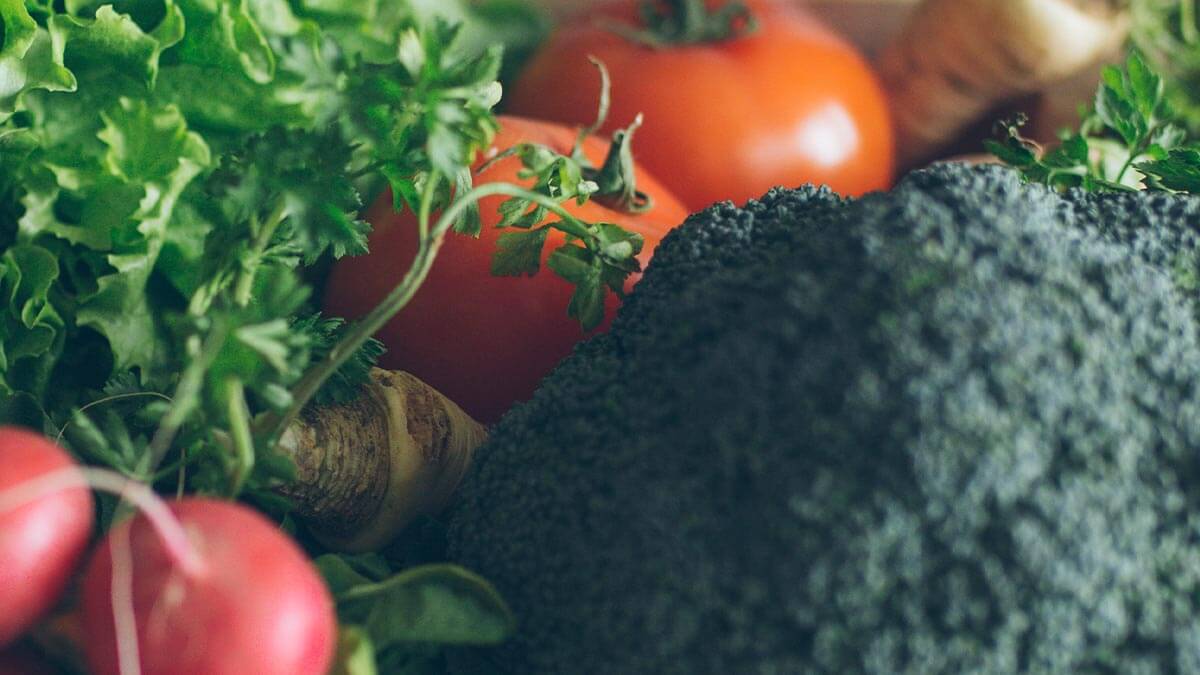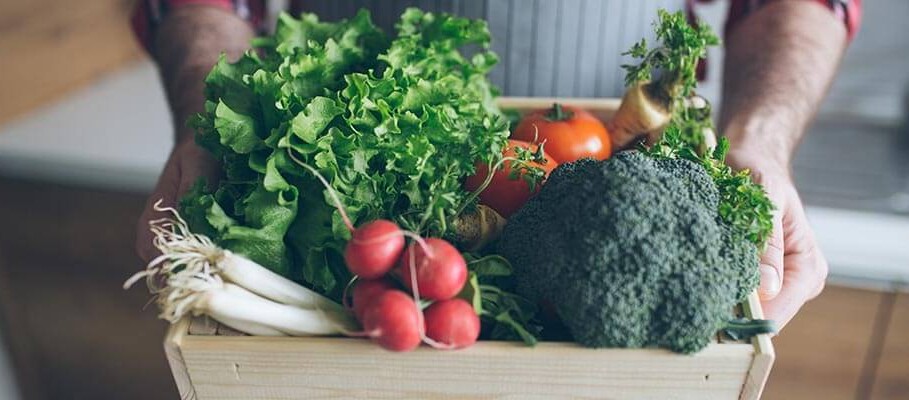Table of Content
- The Building Blocks of Sustainable Bespoke Catering Services
- The Benefits of Sustainable Sourcing for Restaurants and Caterers
- Challenges in Implementing Sustainable Sourcing for Bespoke Catering Services
- Ensuring Authenticity in Restaurant Supply
- Technology's Role in Enhancing Traceability and Transparency in Restaurant Supply
- The Customer Experience
- The Future of Bespoke Catering Services
- Pro Tip
- Conclusion
1. The Building Blocks of Sustainable Bespoke Catering Services
The foundation of any successful catering operation lies in the quality and reliability of its restaurant suppliers. For restaurants venturing into sustainable bespoke catering services, the choice of suppliers becomes even more critical.
These suppliers are not just providers of ingredients, they are partners in a shared commitment to ethical and environmental responsibility. Selecting the right suppliers involves a thorough evaluation process that goes beyond traditional criteria like price and availability. Restaurants need to assess suppliers' farming practices, labor standards, and environmental impact.
They need to determine if suppliers are employing organic or regenerative agriculture methods, if they are committed to fair wages and safe working conditions, and if they minimize waste and carbon emissions in their operations.
The answers to these questions will determine the integrity of the restaurant's sustainability claims. Many restaurants are opting to build direct relationships with local farmers, creating shorter and more transparent supply chains.
This approach allows for greater control over sourcing practices and enables caterers to tell a compelling story about the origin of their ingredients. This direct engagement fosters a deeper understanding of the food's journey from farm to table.
2. The Benefits of Sustainable Sourcing for Restaurants and Caterers
Embracing sustainable sourcing practices offers a multitude of benefits for restaurants and caterers operating in the bespoke catering services market. Firstly, it enhances brand reputation and attracts environmentally conscious clients.
Consumers are increasingly willing to pay a premium for products and services that align with their values. By demonstrating a commitment to sustainability, restaurants can differentiate themselves from competitors and cultivate customer loyalty. Furthermore, sustainable sourcing can lead to improved food quality.
Locally sourced, seasonal ingredients are often fresher and more flavorful than mass-produced alternatives, resulting in a superior culinary experience. They also tend to be more nutritious, providing added value to the customer.
In addition to these customer-facing benefits, sustainable sourcing can also enhance operational efficiency. By reducing waste and optimizing resource utilization, restaurants can lower their operating costs and improve their bottom line.
For example, minimizing packaging or opting for reusable containers can lead to significant cost savings over time. Moreover, sustainable practices often foster innovation, as restaurants explore new ways to utilize ingredients and reduce their environmental footprint. Composting food scraps, for instance, can reduce waste disposal costs and provide nutrient-rich soil for on-site gardens or local farms.
Discover more articles about food topics on our ep website!
- Glass Food Storage Containers for supermarkets
- Enhance Customer Experience with Innovative Restaurant Packaging
- Advancing Market Potential with Plant-Based Food Innovations
Learn more about food service in this ScienceDirect paper
3. Challenges in Implementing Sustainable Sourcing for Bespoke Catering Services
While the benefits of sustainable sourcing are undeniable, restaurants venturing into this space encounter several challenges. One of the primary hurdles is the higher cost of sustainably produced ingredients. Organic, fair-trade, and locally sourced products often come with a premium price tag compared to conventional alternatives. For bespoke catering services operating on tight margins, absorbing these increased costs can be difficult. Finding reliable suppliers who can consistently meet the demands of a catering operation can also be a challenge. Sustainable producers may be smaller in scale and have limited production capacity, making it difficult to secure large quantities of specific ingredients.
Another challenge lies in ensuring the authenticity and traceability of sustainably sourced ingredients. The lack of standardization and transparency in the food supply chain makes it difficult to verify claims of sustainability. Restaurants need to implement rigorous vetting processes and potentially invest in traceability technologies to ensure that their suppliers are adhering to ethical and environmental standards. They may need to conduct on-site visits and audits to verify supplier practices firsthand. Educating staff and customers about the importance of sustainability can require significant time and effort.
4. Ensuring Authenticity in Restaurant Supply
In the absence of universal standards, third-party certifications play a crucial role in validating sustainability claims within the restaurant supply chain. Certifications such as USDA Organic, Fair Trade Certified, and Rainforest Alliance Certified provide assurance that products meet specific environmental and social criteria. For restaurants offering bespoke catering services, these certifications serve as valuable tools for building trust with clients. However, navigating the complex landscape of certifications can be daunting. Restaurants need to carefully evaluate different certification schemes and choose those that align with their values and the expectations of their target audience.
It's important to understand the specific criteria of each certification and the rigor of the auditing process. Some certifications focus primarily on environmental aspects, while others also address social and economic factors. For example, the Marine Stewardship Council (MSC) certifies seafood that comes from sustainable fisheries. Choosing the right certification is not just about adding a label, it's about demonstrating a genuine commitment to sustainability.
Furthermore, restaurants should be prepared to communicate the meaning and significance of these certifications to their clients, highlighting the positive impact of their sourcing choices. They can do this through marketing materials, menu descriptions, and staff training.
5. Technology's Role in Enhancing Traceability and Transparency in Restaurant Supply
Technology is emerging as a powerful enabler of sustainable sourcing in the restaurant supply chain. Innovative solutions like blockchain, the Internet of Things (IoT), and data analytics are revolutionizing how food is tracked, verified, and managed. Blockchain technology, with its immutable ledger system, offers a secure and transparent way to record every step of the supply chain journey. This enhances traceability, making it easier to verify the origin, authenticity, and sustainability credentials of ingredients used in bespoke catering services. A decentralized ledger is a distributed database that records transactions across multiple computers. Each transaction is verified and linked to the previous one, creating a chain of records that cannot be altered.
Cryptography is the science of secure communication. It uses mathematical algorithms to encrypt and decrypt information, ensuring that only authorized parties can access it. Smart contracts are self-executing agreements written in code. They automatically enforce the terms of a contract when specific conditions are met.
For example, a smart contract could automatically release payment to a supplier upon verification of delivery. IoT sensors can monitor environmental conditions, location, and handling practices throughout the supply chain, while collecting data that can be used to ensure product quality and compliance with sustainability standards. Data analytics tools can analyze large datasets from various sources to identify patterns, inefficiencies, and areas for improvement in the supply chain. By leveraging these technologies, restaurants can build greater trust with their clients, demonstrate their commitment to sustainability, and optimize their supply chain operations.

6. How Sustainability Elevates Bespoke Catering Services
The growing consumer preference for sustainable and ethical practices has a direct impact on the customer experience in bespoke catering services. Clients are increasingly seeking caterers who share their values and can provide a dining experience that is both delicious and responsible.
Restaurants that prioritize sustainable sourcing can offer a unique selling proposition, differentiating themselves from competitors and attracting a discerning clientele. Beyond the ethical considerations, sustainably sourced ingredients often translate to superior taste and quality. Fresh, seasonal produce, ethically raised meats, and sustainably harvested seafood offer a richer and more authentic culinary experience.
Restaurants can leverage the story behind their ingredients to create a more engaging and memorable dining experience. Sharing information about the farmers, producers, and communities involved in the supply chain adds a layer of meaning and connection for the guests.
For example, a caterer might highlight the organic farming practices of a local vegetable supplier or the traditional fishing methods used by a sustainable seafood provider. This narrative approach can enhance the perceived value of the catering service and create a stronger emotional connection with the customer.
Request a consultation to our team and discover how to effectively promote your catering products on our platform.

7. The Future of Bespoke Catering Services
The bespoke catering services landscape is continuously evolving, with several key trends shaping its future. The rise of virtual kitchen concepts, also known as ghost kitchens or cloud kitchens, is transforming how catering services are delivered. These delivery-only operations offer greater flexibility and lower overhead costs, enabling restaurants to expand their catering reach without the need for a traditional brick-and-mortar presence.
This model can be compatible with sustainable sourcing practices if carefully managed. Personalized nutrition plans are also gaining traction, with clients seeking customized menus tailored to their specific dietary needs and preferences.
This trend presents both opportunities and challenges for bespoke catering services. Restaurants will need to develop the expertise and resources to create individualized menus that cater to a wide range of dietary requirements while maintaining their commitment to sustainable sourcing.
Another trend to watch is the increasing use of AI-powered menu planning tools. These tools can analyze vast amounts of data, including ingredient availability, nutritional information, and customer preferences, to generate optimized menus for bespoke catering services.
AI can help restaurants create innovative dishes, reduce food waste, and ensure that menus align with sustainability goals. For example, AI could suggest recipes that utilize seasonal ingredients or minimize the use of ingredients with a high carbon footprint.
8. Pro Tip
- Build strong relationships with local farmers and producers: This is crucial for restaurants aiming to excel in sustainable bespoke catering.
- Gain greater control over the supply chain: Direct relationships allow for more oversight and influence on farming practices.
- Ensure access to high-quality ingredients: Local sourcing often means fresher, more flavorful, and potentially more nutritious ingredients.
- Create a compelling narrative about food origin: Customers appreciate knowing where their food comes from and how it was produced.
- Showcase commitment to local sourcing: Establish a "farmer of the month" program and host farm-to-table events.
Get tailored quotes from catering suppliers that match your specific requirements. Start now by using our "Request for Quotes" page.

9. Conclusion
The shift towards sustainable sourcing in bespoke catering services represents a significant opportunity for restaurants to enhance their brand reputation, attract new customers, and contribute to a more sustainable food system.
While challenges exist in terms of cost, supply chain complexity, and certification, the long-term benefits outweigh the hurdles. As consumer demand for ethical and environmentally responsible practices continues to grow, restaurants that embrace sustainability will be well-positioned for success in the evolving landscape of bespoke catering services.
The future of catering will likely be defined by a greater emphasis on transparency, traceability, and a holistic approach to sustainability that encompasses environmental, social, and economic considerations.
Find catering products for your Project!
- ArDelSan Packaging, a Turkey-based company, provides sustainable and high-quality paper packaging solutions for various sectors, including cosmetics, food, and pharmaceuticals, offering a wide range of options from retail and e-commerce packaging to gift, food, and die-cut packaging, with a focus on customer satisfaction and eco-friendly practices
- Suport Horeca SRL manufactures high-quality, durable stainless steel kitchen equipment, including tables, extraction hoods, sinks, and cabinets, designed for commercial and industrial use, prioritizing quality, hygiene, and customer satisfaction.
- Cawé, a Strasbourg-based French company founded in 1931, provides customized professional clothing, PPE, and services for various sectors, emphasizing quality, traceability, and sustainable development.
- C Catering & Bar Supplies is a UK-based catering equipment distributor that has been supplying a wide range of products to the food service industry since 2004.
- Caterline, a UK manufacturer, produces a range of recyclable and reusable plastic catering disposables, including platters, salad bowls, and the versatile Caterbox range, for restaurants, shops, and caterers.
- Italcatering, founded in 1990 in Erbusco, Italy, provides comprehensive catering services, specializing in meal preparation and delivery for a wide range of clients, including schools, companies, elderly care facilities, and private individuals, primarily in the Brescia and Bergamo provinces.

